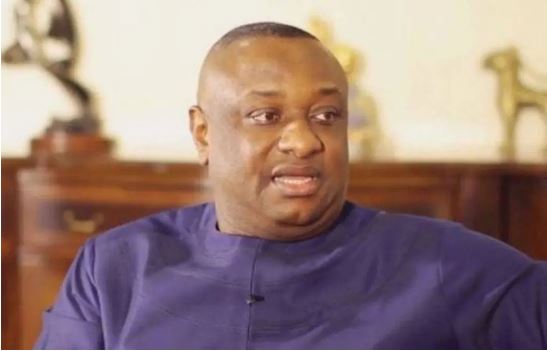Participants in the ongoing Public Works (SPW) programme of the federal government are protesting unpaid salaries.

Keyamo
The Minister of state for Labour and Employment, Festus Keyamo has begged for time to pay protesting participants in the Federal Government’s Special Public Works (SPW) programme.
The workers are protesting the delay in paying their stipend more than three months after kick off.
The SPW is an adhoc programme designed by the government to provide stop-gap three months jobs to mainly artisans to ean N20,000 monthly doing public works.
One thousand youths were hired from each of the 774 local government in the country as beneficiaries, bringing the figure to 774,000 councils.
The programme was inaugurated on January 5. The first batch of beneficiaries have completed their assignment without being paid.
President Muhammadu Buhari on March 20 directed the release of funds to pay the stipends.
Minister of Labour and Employment Festus Keyamo (SAN) hours after, directed the National Directorate of Employment (NDE), the Federal Government agency driving the programme, to start processing the payment plan.
Keyamo, in his official Tweeter handle, (@fkeyamo, assured the participants that they would soon receive alerts of payment.
Twenty two days after, no payment has been made.
Some of the participants at the weekend took to Keyamo’s twitter handle to ventilate their frustration.
One of them described the Federal Government as “heartless” for failing to pay them their stipend.
One Dubagari Jnr, tweeted: “What is happening with the SPW? Up till now, we have not been paid and have successfully finished our work. Please Hon. minister we need explanations on why we have not been paid and you have to start the disbursement before fasting (Ramadan).
Another worker, Maikudi Kolo, asked through a tweet: “Una no go pay 774, 000 workers?”
Abdoul Baqee tweeted: “People are hungry regarding the payment of stipends. Please fast track the payment of these people. 774, 000 people waiting anxiously for their payment with hunger and they don’t even have phone to come to your timeline. When you get hungry just remember those people that work with hunger without their entitlement.”
Yusuf Mohammed Olawuyi asked: “Mr. Honourable minister, what happened to our SPW stipends? You already published that we will start receiving alert from the beginning of April.”
When contacted, Keyamo directed our correspondent to NDE acting Director – General Abubakar Fikpo.
Fikpo said: “We are still in the process; we have identified some loopholes here and there. We want to verify the BVN of the participants. That is why we are working with the banks.
“We are verifying the BVN of those participants in order to avoid double payments to several people or to three or more accounts.”
About SPW Programme
The Special Public Works Programme is a dry season/off season transient job for rehabilitation/maintenance of social infrastructure.
The Programme is designed to employ 1,000 persons each from the 774 Local Government Areas.
It is being implemented by the National Directorate of Employment (NDE) under the supervision of the Federal Ministry of Labour and Employment.
N52billion was voted for the programme, part of it to pay participants at N20,000 monthly for three months.
The programme was expected to commence on October 1, 2020 but suffered a setback because of internal wranglings between Keyamo and a former Director – General of the NDE, Nasir Ladan. President Muhammadu Buhari fired Ladan.
There was also a big row between the National Assembly and Keyamo over the allocation of slots to hire of beneficiaries.
N26 billion was released for the procurement of equipment and for logistics before the programme eventually commenced on January 5.
Keyamo, during the inauguration of the programme, said it will address poverty and hunger.
The minister said the programme was conceived following the success of the pilot scheme in eight states to gauge its impact in addressing the ballooning population of the unemployed and rising the insecurity.
Keyamo noted that countries like India and Malaysia used similar programmes to fight poverty.

